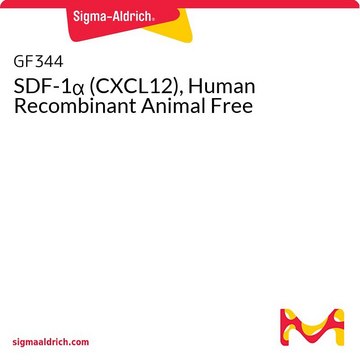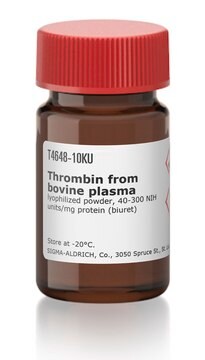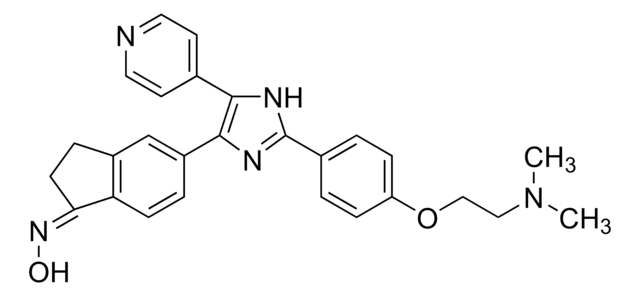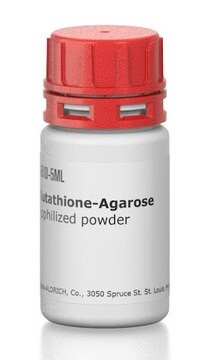S1577
Stromal Cell-Derived Factor 1α/pre-B Cell Growth Stimulating Factor human
recombinant, expressed in E. coli, lyophilized powder, ≥97% (SDS-PAGE), suitable for cell culture
Sinónimos:
SDF-1, SDF1, SDF-1α
About This Item
Productos recomendados
biological source
human
Quality Level
recombinant
expressed in E. coli
assay
≥97% (SDS-PAGE)
form
lyophilized powder
potency
≤50 ng/mL EC50
packaging
pkg of 10 μg
storage condition
avoid repeated freeze/thaw cycles
technique(s)
cell culture | mammalian: suitable
impurities
≤1 EU/μg protein Endotoxin
color
white
UniProt accession no.
shipped in
dry ice
storage temp.
−20°C
Gene Information
human ... CXCL12((6387)
General description
Biochem/physiol Actions
Physical form
Reconstitution
Storage Class
11 - Combustible Solids
wgk_germany
WGK 3
flash_point_f
Not applicable
flash_point_c
Not applicable
Certificados de análisis (COA)
Busque Certificados de análisis (COA) introduciendo el número de lote del producto. Los números de lote se encuentran en la etiqueta del producto después de las palabras «Lot» o «Batch»
¿Ya tiene este producto?
Encuentre la documentación para los productos que ha comprado recientemente en la Biblioteca de documentos.
Transmembrane G-protein-coupled CXCR-4 Receptor and
Activates Multiple Signal Transduction Pathways.
Nuestro equipo de científicos tiene experiencia en todas las áreas de investigación: Ciencias de la vida, Ciencia de los materiales, Síntesis química, Cromatografía, Analítica y muchas otras.
Póngase en contacto con el Servicio técnico







